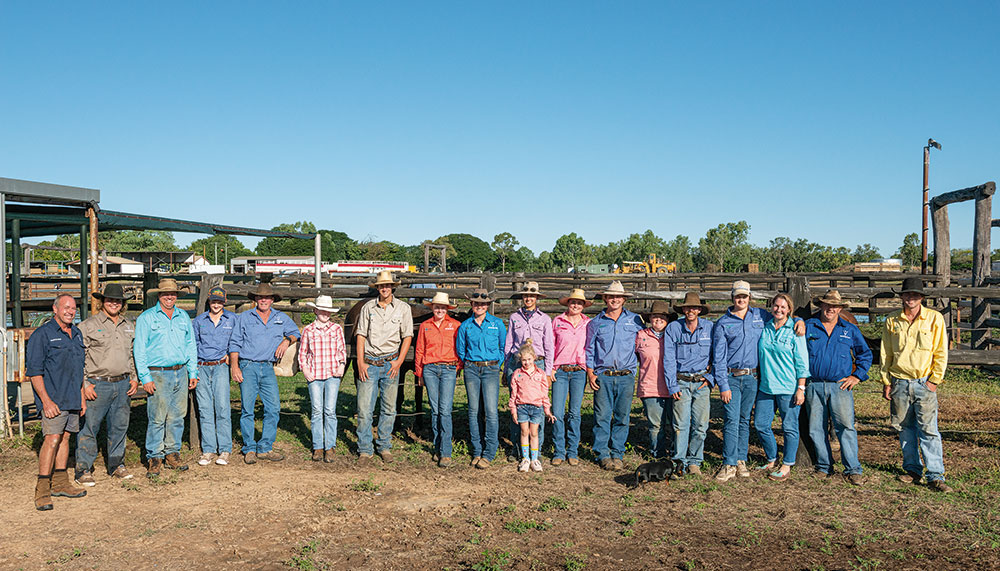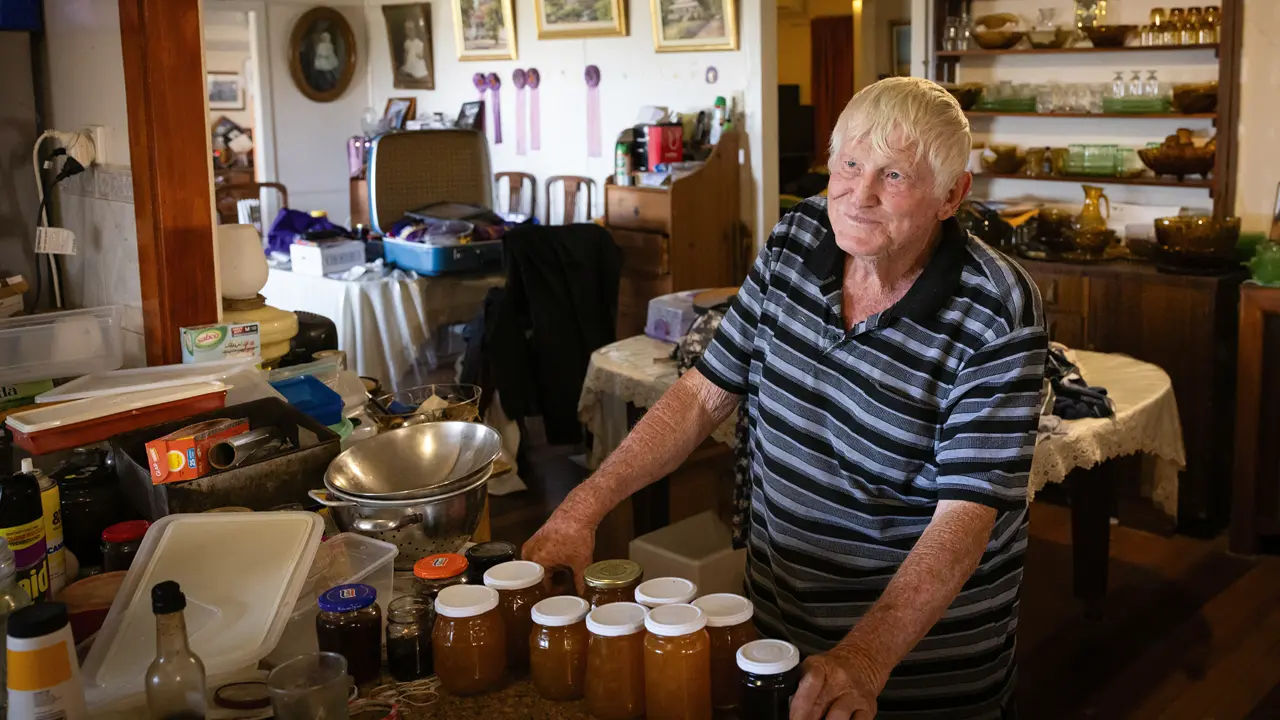Introducing black cattle and white cotton are two of the major changes on CPC’s Wrotham Park in Far North Queensland.
Story + Photos Ken Eastwood
Rain thunders down, spreading shallow lakes under the 115-year-old mango trees and across the homestead lawn, through paddocks and across tracks. In places, the cattle yards are knee-deep in thick, black mud, swallowing boots and young ringers. Mustering camp is marooned. They’re playing cardsand watching downloaded Netflix series on their phones from their swags. Graders are stationary and the first ever cotton crop, which was about to be harvested, will have to sit and dry out for another couple of months.
It’s mid-year and station life on historic Wrotham Park in Far North Queensland has almost come to a standstill in the biggest off-season rain event anyone can remember. Up to 130mm will fall over parts of the property – in a couple of days – a good chunk of the 825–1200mm it usually gets over the tropical summer, and it’s surprisingly cold.
As soon as the road trains can get in, there will be early morning loading of weaners but, for now, staff at the homestead stock up on pumpkin soup and plump sausage rolls, spend time in the open-sided rec room, and catch up on washing. You’d think they’d like the break in the busy dawn-to-dusk routine, but they all say they are itching to get back to work.
And there’s plenty to do on the 6,000sq km Consolidated Pastoral Company property. There are 42,500 head of cattle that need to be mustered, drafted and branded, and the weaners educated to respond well to yards, horses, bikes and vehicles. There’s an extensive new crop and pasture program, a savannah burning program for carbon credits, tens of kilometres of river fencing to complete, weeding, lick to put out and horses to shoe.
This story excerpt is from Issue #146
Outback Magazine: December/January 2023









